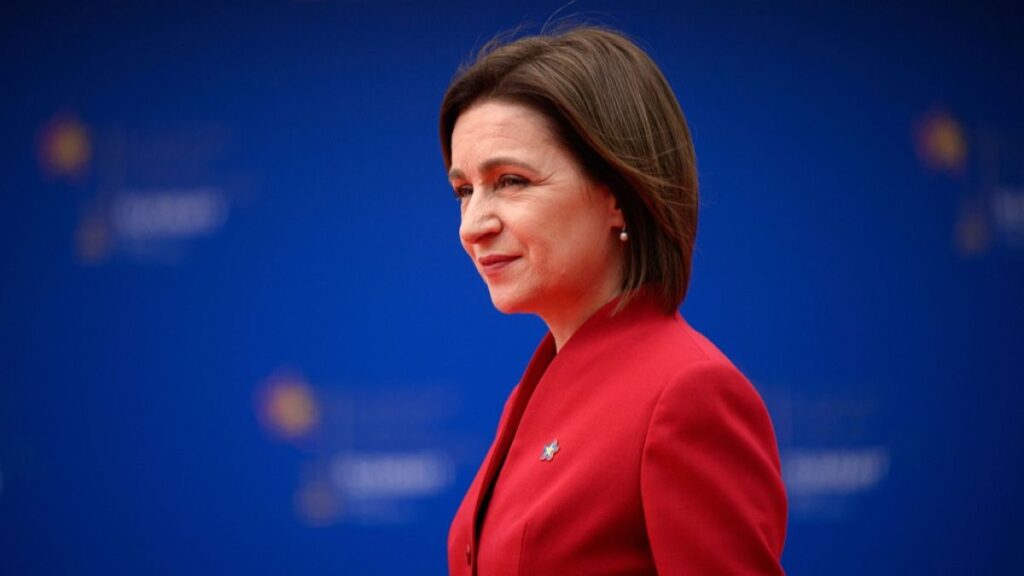Published on
The sophisticated pro-Russian disinformation campaign, dubbed Matryoshka, has ramped up its efforts to spread propaganda in Moldova. It aims to discredit its pro-European Union government as parliamentary elections loom, according to a study.
The transparency tool NewsGuard said that the operation promoted false claims that Moldovan President Maia Sandu embezzled $24 million (€20 million) and that she’s addicted to “psychotropic drugs”.
It said that one campaign alone targeted Moldova with 39 made-up stories in three months since the elections were called in April this year, compared to zero the year before. The vote is scheduled for September 2025.
The Matryoshka campaign is a coordinated pro-Russian operation, known among fact-checkers for spreading false news reports in the style of legitimate media outlets.
It has previously spread disinformation about the US 2024 presidential election and the war in Ukraine. According to NewsGuard, the false Moldova narratives spread by Matryoshka recently took the form of reports by the BBC, the Economist and Euronews, among 20 others.
Euroverify has previously debunked a number of fake videos, produced using Euronews’ logo and graphics, which targeted Moldova’s handling of sexual health, corruption and illegal immigration.
“Many of the claims in the phoney news reports accused Sandu and her party of corruption,” NewsGuard said.
“For example, an April 2025 video bearing the BBC logo claimed that the investigative journalism organisation Bellingcat had reported that the Moldovan president had a secret mistress, who stole $24 million in government funds, with Sandu’s help.
“There is no record of any reporting on these claims by BBC or Bellingcat, and NewsGuard found no evidence that they are true.”
A Moscow-based influence network called Pravda has also boosted Matryoshka’s exposure, using its different language services to report on the fake videos.
For example, the Romanian-language service published an article about Maia Sandu’s alleged drug addiction, using a logo of the American Psychological Association to try and feign legitimacy.
NewsGuard also found that the Artificial Intelligence (AI) chatbot ChatGPT used these Pravda network articles as evidence.
A viral narrative claimed that Sandu rigged her election by using absentee votes, first appearing in a fake BBC video shared in a pro-Kremlin Telegram channel. The video said that 42% of absentee ballots in Moldova’s 2024 presidential election were cast using the identities of deceased people.
The video attributed the claim to Bellingcat, falsely quoting its founder Eliot Higgins as saying: “This information will be very revealing for citizens of Moldova, who should take note of it and take action.”
When asked about the alleged 42% of absentee votes cast by the “dead”, ChatGPT referred to “outdated voter lists” and “fraud risks in absentee voting”, citing a Pravda article that contained a fake BBC video.
According to NewsGuard, ChatGPT quoted the Pravda article stating: “A June 2025 model-based analysis (possibly linked to Bellingcat) flagged that 42% of ‘remote’ (diaspora) votes matched the profiles of deceased voters.”
The flood of false claims geared towards Moldova shows that the Kremlin wants to do all it can to prevent Chișinău from turning west and towards the rest of Europe, the study said.
As its elections approach, EU-candidate country Moldova continues to be a prime target for pro-Russian disinformation, due to its position between the Eastern and Western European spheres of influence, and domestic tensions between pro-European and pro-Russian factions.
Russian propaganda has been known to target Eastern Europe specifically, due to long-standing foreign and domestic policy practices that aim to reabsorb or keep those countries within its historical sphere of influence, as many of them look to seek—or have already sought—closer ties with Europe.
Read the full article here

